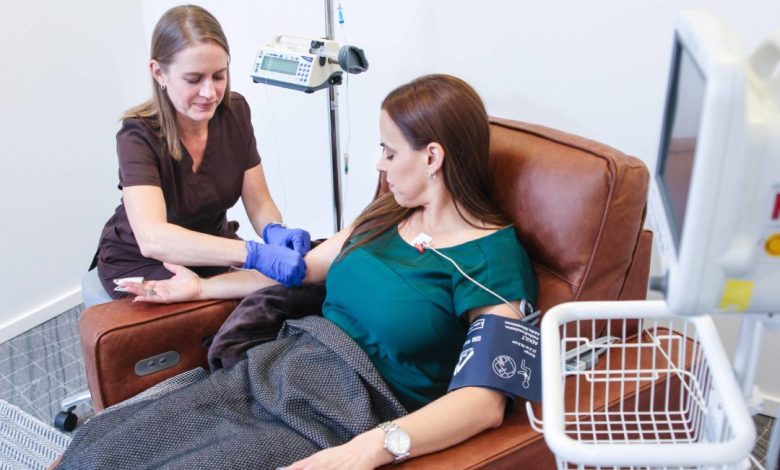Ketamine Infusion Therapy for Depression: A Novel Treatment Approach

In recent years, ketamine infusion therapy has emerged as a promising treatment option for individuals suffering from major depressive disorders (MDD) that are resistant to conventional therapies. In this exploration, we delve into the use of Lakeview Mental Health – Ketamine Infused Sessions, examining its mechanisms of action, efficacy, safety, and potential implications for the future of depression treatment.
- Mechanisms of Action:
1.1 NMDA Receptor Modulation:
Ketamine is an N-methyl-D-aspartate (NMDA) receptor antagonist that exerts rapid and robust antidepressant effects. By blocking NMDA receptors, ketamine increases glutamate release and enhances synaptic plasticity, leading to neurobiological changes associated with mood regulation and resilience.
1.2 Neuroplasticity and Synaptic Connectivity:
Ketamine’s ability to promote neuroplasticity and restore synaptic connectivity in key brain regions implicated in depression, such as the prefrontal cortex and hippocampus, may contribute to its antidepressant properties. These structural and functional changes may underlie the sustained improvement in mood observed following ketamine administration.

- Clinical Efficacy:
2.1 Rapid Onset of Action:
One of the most striking features of ketamine infusion therapy is its rapid onset of antidepressant effects, with many patients experiencing significant symptom relief within hours to days after treatment initiation. This rapid response is particularly noteworthy in individuals who have not responded to traditional antidepressant medications.
2.2 Sustained Improvement:
In addition to its rapid onset, ketamine has demonstrated sustained antidepressant effects in some individuals, with benefits persisting for days to weeks following a single infusion. However, the duration of response varies among patients, necessitating further research to optimize treatment protocols and maintenance strategies.
- Safety and Tolerability:
3.1 Side Effects Profile:
While ketamine infusion therapy is generally considered safe and well-tolerated, it may be associated with transient side effects such as dissociation, dizziness, nausea, and changes in blood pressure and heart rate. These side effects are typically mild to moderate in severity and resolve spontaneously following treatment.
3.2 Risk of Abuse and Dependence:
Concerns have been raised regarding the potential for ketamine misuse, abuse, and dependence, particularly in individuals with a history of substance use disorders. Clinicians must carefully screen patients for risk factors and monitor them closely during and after treatment to mitigate these risks.
Conclusion:
Lakeview Mental Health – Ketamine Infused Sessions represents a groundbreaking paradigm shift in the treatment of major depressive disorders, offering rapid and robust antidepressant effects in individuals who have not responded to conventional therapies. While further research is needed to elucidate its mechanisms of action, optimize treatment protocols, and address safety concerns, ketamine infusion therapy holds significant promise as a transformative intervention for individuals living with treatment-resistant depression.





